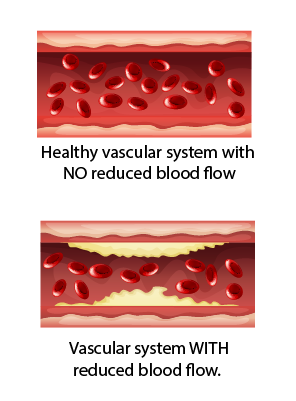Ischemic Vascular Disease and Aspirin: What's the Relationship?
What is Ischemic Vascular Disease (IVD)?
Ischemic Vascular Disease (IVD) is a condition where there's reduced blood flow to certain parts of the body due to narrowed or blocked blood vessels. This reduction in blood flow can lead to serious health issues such as heart attacks, strokes, and blood clots.

Why is it Important to Take Aspirin?
Aspirin is not just for headaches and fevers; it also helps people with heart problems, especially those with ischemic vascular disease. It works by making the blood thinner, which stops dangerous blood clots from forming in the arteries. Blood clots can further block already narrowed blood vessels, leading to complications like heart attacks and strokes.
Aspirin isn't just good for making you feel better when you're sick; it can also can lower the chances of having a heart attack or stroke. If you are taking asprin, make sure to follow instructions.
- Take the strength of aspirin recommended by your health care provider
- Do not take aspirin for more than 3 days in a row unless instructed to do so by you health care provider
- Never give aspirin to children under 15 years of age
What to Do if You Suspect You Have IVD and Need Assistance?
If you're experiencing symptoms such as chest pain, shortness of breath, numbness or weakness in your limbs, or difficulty speaking, it's crucial to seek medical help immediately. These could be signs of a heart attack or stroke, both of which are medical emergencies. If you are experiencing a medical emergency, call 911 immediately.
If you suspect you have IVD or if you've been diagnosed with the condition and need assistance managing it, booking an appointment with our providers is a wise step. Our team of healthcare professionals can provide you with personalized care and guidance tailored to your needs.
- Find a primary care provider that suits your needs. You cand find one here.
- Call or text (405) 632-6688 to schedule an appointment
- Mention your heart health concerns during your visit.
- If you do have IVD, ask if you should take aspirin.
Seek assistance promptly if you suspect you have IVD. You can take proactive steps towards managing the condition and reducing your risk of complications. Your health is important and taking care of it should be a top priority. Reach out to our providers for assistance and book a consultation if you have any concerns about IVD or any other health-related issues.

